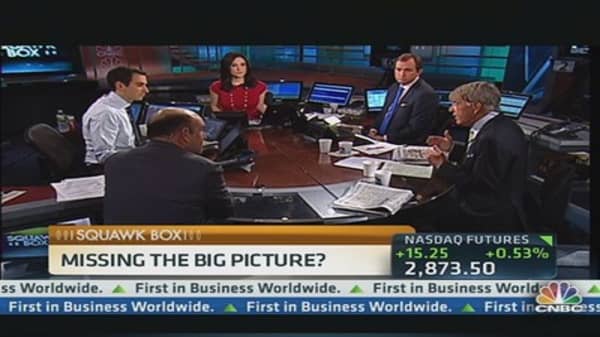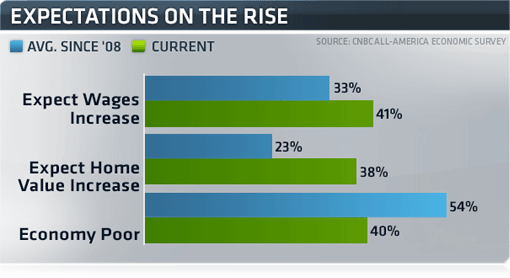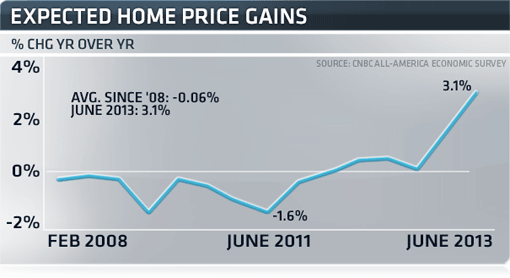Americans' views on the economy are the best they've been since the recession began, but the recent improvement tallied in June's CNBC All-America Economic Survey masks a long-run negative shift in the public's satisfaction with their standard of living.
The survey of 810 Americans across the country from all income groups, occupations and regions, finds more people think their home values will go up and fewer judge the current state of the economy as poor than at any time since the recession began.






